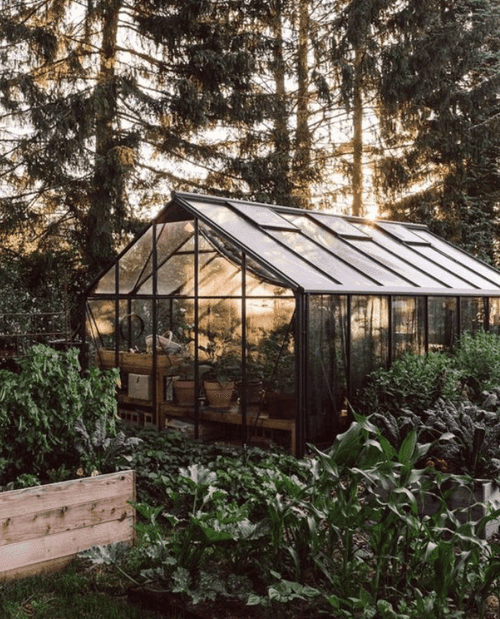Greenhouse Farming: Making Best Use Of Plant Yields and Sustainability
With regulated environments and lowered water use, greenhouse farming supplies the excellent service for year-round production of fresh fruit and vegetables. Discover the advantages of greenhouse farming and begin reaping the benefits today!
Benefits of Greenhouse Farming
Are you questioning what makes greenhouse farming so beneficial? One of the major advantages of greenhouse farming is the ability to control the setting in which crops are grown.
One more benefit of greenhouse farming is the reduction in water usage. By using water extra efficiently, greenhouse farming assists to preserve this priceless resource.
Furthermore, greenhouse farming enables for better parasite and illness monitoring. With the controlled setting, it is less complicated to avoid and manage the spread of pests and diseases. This minimizes the requirement for dangerous chemicals, making greenhouse-grown plants safer and much more eco-friendly.
Furthermore, greenhouse farming supplies protection against extreme climate events. Plants expanded in greenhouses are shielded from hefty rainfall, solid winds, and hailstorms, which can harm or destroy exterior plants. Monarch Greenhouse installation Utah. This security ensures a more reliable and secure crop yield, also throughout unforeseeable weather condition conditions

Maximizing Crop Returns With Controlled Environments
To optimize crop returns in greenhouse farming, you can accomplish ideal outcomes by controlling the atmosphere. By meticulously taking care of factors such as temperature, carbon, light, and moisture dioxide degrees, you can create the best problems for your plants to prosper. Among the crucial benefits of greenhouse farming is the ability to control these ecological elements, allowing you to customize them to the particular demands of each plant. As an example, you can change the temperature to advertise faster growth throughout the day and lower it slightly during the night to simulate all-natural changes. Similarly, you can manage humidity degrees to avoid illness and make sure correct transpiration. By offering the correct amount and high quality of light, you can prolong the growing season and increase yields. Additionally, by managing co2 degrees, you can improve photosynthesis and urge vigorous development. By applying these regulated environments, you can maximize crop returns and achieve constant, top quality produce throughout the year.
Supporting Sustainability With Greenhouse Farming
Take full advantage of sustainability in greenhouse farming by carrying out efficient resource administration strategies. Integrating lasting practices in greenhouse style, such as utilizing energy-efficient products and enhancing natural lights, can additionally boost sustainability. By adopting these source management methods, you can contribute to a much more lasting future in greenhouse farming.
Lowering Water Use in Greenhouse Farming
By implementing click for more info efficient water monitoring strategies, you can dramatically reduce water use in greenhouse farming. Water is a crucial resource in agriculture, and saving it not only benefits the environment however additionally aids to optimize plant returns and earnings. One efficient method to reduce water use is with making use of drip irrigation systems. These systems deliver water straight to the plant's origins, minimizing evaporation and making certain that every decrease is utilized successfully. Additionally, surveillance and controlling the moisture levels inside the greenhouse can protect against unnecessary water loss. By making use of sensing units and automated systems, you can readjust the air flow and watering appropriately, maximizing water use based on the specific demands of your plants. One more method is to recycle and catch rain. Accumulating rainwater from the greenhouse roofing and keeping it in storage tanks allows you to supplement your irrigation needs without relying solely on freshwater resources. Moreover, carrying out mulching techniques can assist keep soil moisture, decreasing the frequency of irrigation. Mulch acts as an obstacle, preventing water evaporation and keeping the dirt cool and moist. By adopting these water-saving methods, you can lessen water waste, save sources, and produce an extra lasting future for greenhouse farming.
Year-Round Production of Fresh Produce in Greenhouses
Greenhouses give lawn aerator bunnings a controlled environment that allows you to expand crops no matter of the exterior weather conditions. Greenhouses can be furnished with heating and cooling systems to maintain ideal temperature levels for different plants. By implementing these strategies, you can make best use of the productivity of your greenhouse and enjoy a stable supply of fresh generate all year long.

Final Thought
In conclusion, greenhouse farming supplies various advantages for making best use of plant yields and advertising sustainability. In addition, greenhouse farming permits for reduced water usage, making it an eco friendly option.
One of the major benefits of greenhouse farming is the capacity to regulate the environment in which plants are grown.To make the most of crop returns in greenhouse farming, you can accomplish optimum outcomes by controlling the environment. One of the essential benefits of greenhouse farming is the capability to manage these environmental factors, permitting you to tailor them to the particular needs of each crop.By implementing efficient address water management methods, you can dramatically lower water usage in greenhouse farming.In verdict, greenhouse farming gives countless advantages for making the most of crop returns and advertising sustainability.